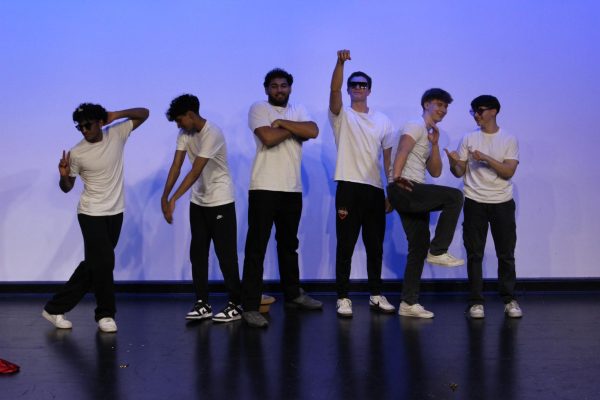Sing for All to Hear
Moor Mother and Billy Woods come together on one of the most defining musical statements of the year with ‘BRASS’
It’s not often that an artist is given the opportunity to present a masterpiece.
We are only ever given one magnum opus, only one climax that defines their narrative; and to have the rare privilege to experience it in real time and to recognize the majesty of the work as it occurs is an opportunity not afforded to many.
When listening to Moor Mother and Billy Woods’ newest collaborative record “BRASS,” one can’t help but be in complete awe of the blinding perfection that they have provided us with the luxury of experiencing.
The release of “BRASS” on Dec. 24 by Moor Mother and Billy Woods marks the sixth studio album of Moor, and the 13th of Woods, both veterans of experimental hip hop and the Afrocentric musical revival scenes. Although the two have produced projects that maintain some level of overlap through their descriptions of Black empowerment, in many more ways they differ in their approach – Moor often experimenting with noise and free jazz instrumentation, while Woods often deliberating himself through cold, harrowing verses.
But one thing is immediately clear as soon as the record begins: the pair’s boldness and unflinching style is nothing to be doubted or questioned.
Beginning with the track “Furies,” the droning, simple rhythmic section sits behind Moors and Woods bars, both discussing the immense anger they and many other African-Americans wrestle with from the generations of oppression they have received at the hands of Europeans, and what is left for them but to sit and stew as they are increasingly trapped to ghettos and poverty as the world moves on, seemingly content with their modern-day enslavement.
Although their second track “The Blues Remember Everything the Country Forgot,” leads the listener to believe the heavy weight of the first track will be lifted as the soothing voice of Wolf Weston enters, Moor and Woods don’t let up for a moment, hiding in the delicate, floating vocal melodies ideas of the never-ending catchup game that African-Americans seem to exist in following their enslavement.
Moor then follows with unrelentingly aggressive lyrics, speaking “Bloodstain, sweat, slip-knot, stop with cold chain. More often than not. The gaze the same, terror, terrain,” discussing how America seems to for ease of mind completely move on from their sins, leaving behind those they destroyed in their wake, including Black Americans.
Moor and Woods then reveal the message of the track and the album as a whole: that in the absence of true reparations or grievances for the atrocities committed against Africans by their supposed country, the Blues and the culture of African-Americans remembers, defining themselves by the horrors of their past and present, and by extension by their rule by White overlords.
In unabashed detail, Moor and Woods continue to lay out what it means to be African-American, using afrocentric and noise-esque instrumentation to communicate their suffrage and striving to retain and revitalize what it means to be African. Incredibly, not only do they use these unique and eclectic manners of production in service of their narratives of black empowerment, they manage to do so effectively and masterfully, with warm, moving soul vocalists patterning the entire record, and strong dynamics offering contrasting and powerful moments of hypnotic, rhythmic movements that daze the listener.
On the other hand, Woods continues to dish out profound writing in dense, increasingly complex bars, including his lines on “Gang for a Day,” which characterize the experiences of being gentrified and commoditized as a black American constantly by white Americans, and its subsequent devaluing nature that is implied and felt by their recipients. Using the line “My black facе the elephant in the room, they wanna be gang for a day,” he describes the dehumanization of simultaneously being ostracized for his race and abused by white Americans for their token.
Furthermore, Woods and Moor illustrate the immense horror and fear that is married to the African-American experience, finishing “Gang for a Day” with the lines “Mom said, ‘don’t let anybody take what’s ours’ In other words, don’t come home without it. I thought she was angry, now I know it was fear,” describing how even the simplest of conventions are not guided by obligation or a moral compass, but by the immense fear of the consequences of their actions, fearful of the slight of the white man unhinged and willing to enable himself.
With “Rock Cried,” Moor then tells of a racial killing disguised as a fable, writing, “‘Oh lord, oh God, don’t come down, stay high,’ The rock cried. ‘I can’t hide you. They gon’ find you, they gon’ lynch you and call it suicide. Where you gonna run to?’ The rock cried, the rock cried.” Moor and Woods illustrate the immense and overwhelming horror and violence that will forever be associated with the African-American experience, that as long as they are entrapped in ghettos and entrenched in poverty, as long as they are murdered in cold blood by hateful white people, the African-American experience is invariably fear.
They further elaborate on their notion of fear, stripping it bare for its crucial component of powerlessness, as Africans have historically and continue to be at the mercy of their white oppressors, and thus defined by them even today.
Later on “Scary Hours,” Moor writes “Product of the ’80s, 1885, cut the pie, red fillin’ spillin’ in Berlin,” and “Can you tell me where I am right now? They drawin’ the lines right now, on the map. Dividing the rivers and mountains up that ain’t never been found,” describing the long-lasting effects of the Berlin Conference of 1885, which divided Africa amongst the ruling European powers of the time, creating divisions amongst Africans without any consent or understanding of the generations of African lives they were destroying. These scars of decisions made centuries ago may not affect us directly, but for the lives of 42 million African-Americans, this is the true fear that meets their eyes daily.
On this album, Moor and Woods have not simply created another record to put on the shelf for display. It demands to be played and heard, it begs to speak for the cries and shrieks of billions of lost souls in service of the rule and capital of Europeans, and for the millions still living by way of fear and terror every step they take for the color of their skin.
The majesty that they have crafted on this album is impossibly dense, filled to the brim and further with harrowing tales of the Black experience and the repeated grievances against Black Americans, and frankly is nothing short of flooring.
In their music though, not once do they misstep, nor do they once cower beneath the hand of those above. Moor Mother and Billy Woods sing loud and sing proud, for all to hear and for all to see.



